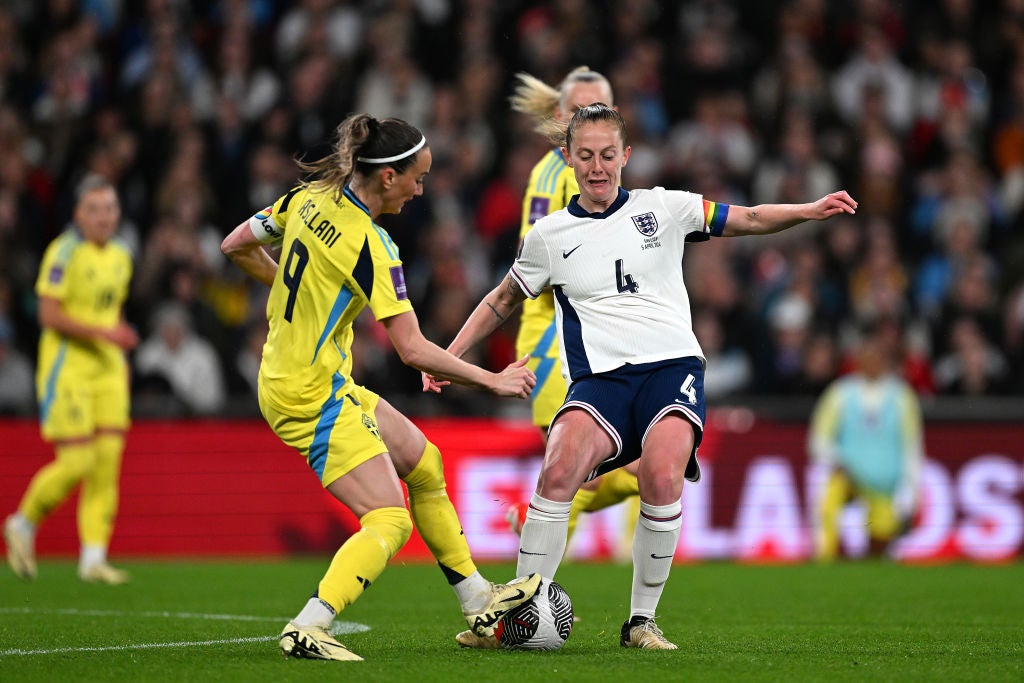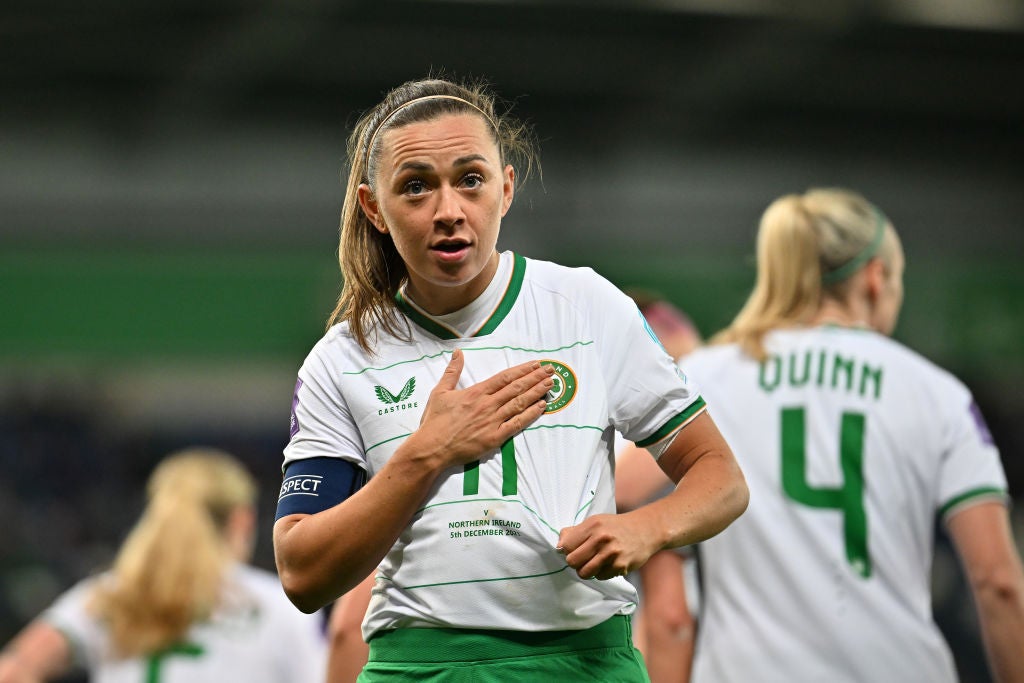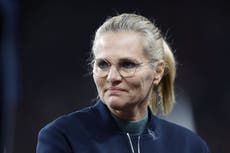Ireland’s plan for England will be another test of Sarina Wiegman’s midfield puzzle
Ireland will understand their role and relish the occasion of hosting England in Dublin for the first time since 1987
The Sweden manager Peter Gerhardsson was evidently pleased with himself. At the end of a frustrating night for the Lionesses at Wembley on Friday, Gerhardsson revealed how his side had managed to disrupt England’s midfield fulcrum Keira Walsh, leading to a sloppy performance in possession from the European champions. A few moments later, Sarina Wiegman dismissed the notion that Sweden and Gerhardsson had found the magic formula. Of course the visitors had a plan to stop Walsh, Wiegman replied. England have come to expect it every game.
There will be no surprises, then, as the Lionesses pick themselves up and travel to Dublin for their first fixture against the Republic of Ireland since 1987. A historic occasion awaits the hosts ahead of just their second match at the Aviva, with over 30,000 tickets sold for the Euro 2025 qualifier. England know what is coming: “Compact, physical, disciplined, good on the counterattack,” Wiegman explained. Or, in other words, exactly what the Lionesses struggled against when they were held by Sweden.
A shaky start means the defending European champions must improve if they are to qualify automatically for next summer’s finals in Switzerland. Key to that will be rediscovering the pace and tempo of their passing in midfield, after a difficult evening against Sweden’s organised press. Walsh, whom the Lionesses know will be targeted, and Georgia Stanway were below par, while England often veered from being too passive in possession to inaccuracy with it. “Being tighter” on the ball was Wiegman’s key message after arriving in Dublin.

The return of Leah Williamson to the starting line-up, for the first time in over a year, should help England’s build-up. The captain’s ball-playing ability, along with Alex Greenwood in defence, can help England bypass Walsh if required when Ireland place a marker on the Barcelona midfielder. England’s poor record against low-blocks has been evident while Williamson has been sidelined. It was only rectified during the World Cup after a change of shape to 3-5-2, which in turn only came around after Walsh’s injury against Denmark.
Perhaps as much of the problem has been finding the right role for Lauren James, with England’s tactical shift during the group stages facilitating the Chelsea attacker as a No 10. James was England’s most creative outlet against Sweden and yet was among the first to be replaced in the second half. Wiegman said she wanted more “energy” and speed in England’s play, with goalscorer Alessia Russo also replaced. Neither change helped England’s build-up, apart from a frantic final five minutes where Sweden managed to hang on.
All of which may play into Ireland’s hands. Eileen Gleeson’s side will be preparing themselves to face similar moments but will be buoyed by restricting France to a 1-0 win in Metz after conceding to Marie-Antoinette Katoto’s early goal. After all, Ireland’s performances at the World Cup showed a capacity to punch above their weight. This qualifying group, against heavyweights in England, France and Sweden, allows Ireland to embrace a familiar role.
"We’re realistic,” said captain Katie McCabe. “But in terms of our belief, we always believe we can go and beat anyone on our day. We’ll make sure to obviously be keeping their strengths at bay. We know it’s going to be tough, that’s what we’re made of. We’re made of strong stuff as Ireland and as a nation, and we are at home.”
Ireland have grown through their promotion in the inaugural Nations League campaign and showings at the World Cup. “It’s a real team,” Wiegman said. “With togetherness and a strict plan”.

McCabe will typify Ireland’s fight but represents their threat and quality as well, giving Ireland the belief and confidence that they can be patient and wait for a single moment. “She knows her strengths and she knows they can be game-changing as well,” Williamson said of her Arsenal teammate. England, meanwhile, have only kept one clean sheet in their last six games, conceding nine goals. Wiegman said the goal England conceded at Wembley was an “unnecessary” lapse, with Fridolina Rolfo scoring from Sweden’s first effort on target.
It adds jeopardy to England’s visit, even as Wiegman denied that dropping points against Sweden turned Dublin into a “must-win” given how competitive their group is going to be. The reality of it, though, means anything other than a win in Dublin could put the Lionesses into an awkward position and fighting to avoid the play-offs. An old rivalry will be renewed by players who were not born the last time Ireland welcomed England for a women’s international in Dublin, and everyone knows what their plan will be.
Join our commenting forum
Join thought-provoking conversations, follow other Independent readers and see their replies
Comments


Bookmark popover
Removed from bookmarks